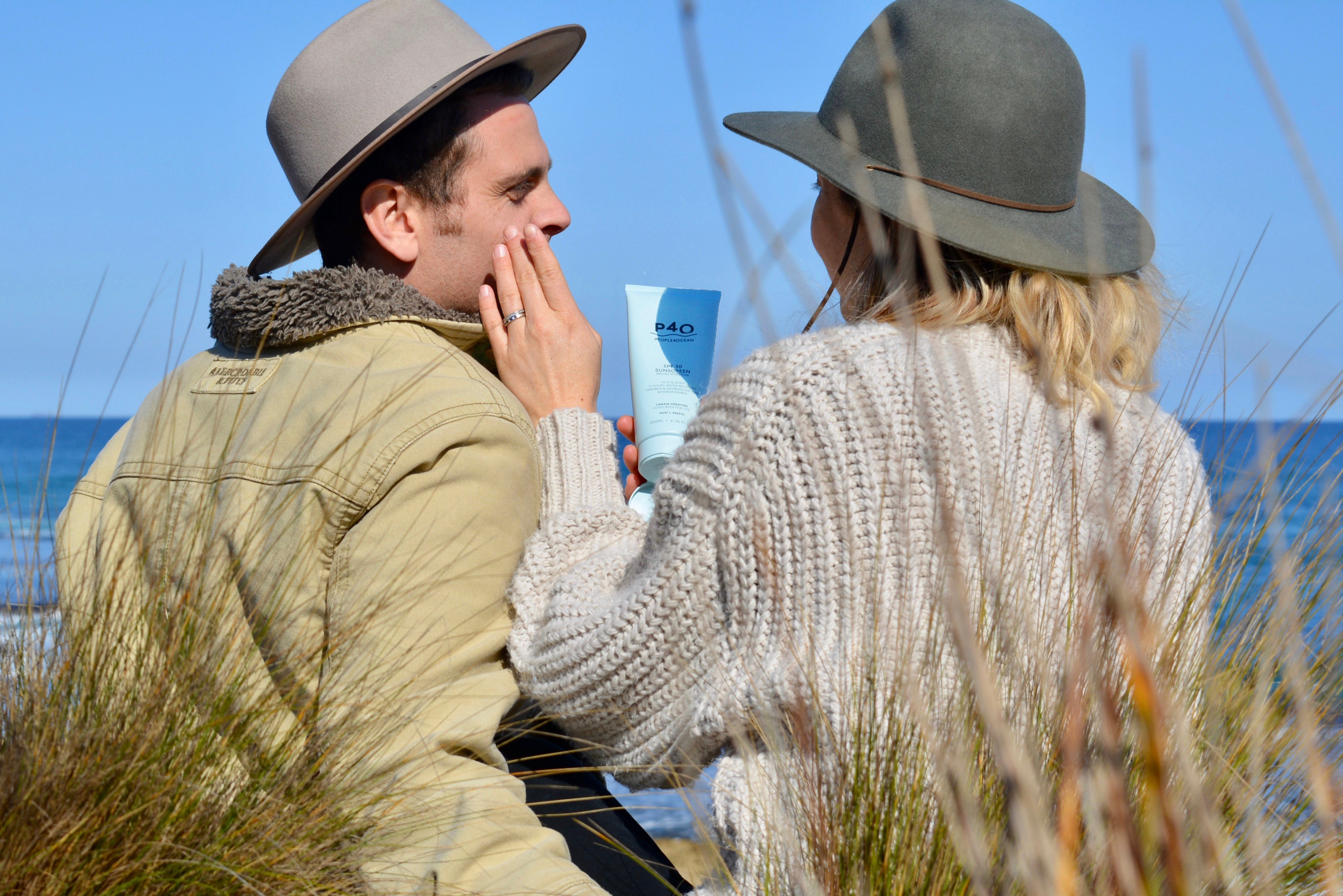
The beauty business has gone big on 'radiant skin' and ‘glow' - terms slapped on everything from body oil to blusher that will make you shine, literally.
But before slathering on false promises (and toxins) on your skin, remember that glow is as much about how you feel as how you look. Your skin keeps no secrets. In fact, as your largest organ, it can reveal a lot about your inner health, from hydration to stress levels, sleep quality, digestion, diet and your rate of cellular ageing.
Here are the best natural ways you can help your skin radiate from the inside out this winter...
1. Eat plenty of season greens
Winter fruits and vegetables - like carrots, pumpkins, apples & beets – are brightly-coloured and very nutrient-dense. The more of these nutrient-dense wholefoods you eat, the happier and healthier your skin will be. Root vegetables are an excellent source of antioxidants, beta-carotene (provitamin A) that strengthen skin and boosts cell regeneration. Green leafy vegetables and mushrooms are also rich in Niacin (Vitamin B3) important to keep your skin radiant, soft and healthy. Finally, keeping your levels of vitamin C is key for a radiant skin throughout winter. Aside from its immune-boosting benefits, vitamin C is crucial for healthy skin, as it helps collagen synthesis and protects your skin from free radical damage and sun damage.
2. Stay hydrated
Hydration is key for a plump, toned and radiant skin, in winter and throughout the year. A hydrated skin is able to retain moisture and reduce the appearance of fine lines & wrinkles. But remember, your skin mostly drinks from within… and for that reason drinking plenty of water is the best way to hydrate your skin. Avoid harsh lotions with fragrances and synthetics, and drink one glass of water for every cup of coffee or tea (caffeine and theine are diuretic). Ditch the runny moisturizer for rich, non-toxic creams and balms high in nourishing oils and ceramides. Investing in good skincare will help maintain moisture within your skin & protect it from dry cold air. For a lighter non-oily feel, sodium hyaluronate is a great moisture-locking alternative.
3. Get plenty of sleep
During sleep, the body releases human growth hormone, a necessary ingredient for collagen production. Skimping on sleep raises cortisol levels, which can interfere with collagen production. Remember to gently cleanse your skin before bed to remove all makeup and other skin-covering cosmetics that may clog pores and prevent skin from breathing overnight. If bedtime has drifted later and later recently, try moving it forward in 15-minute increments over the course of a week or two until you achieve at least a seven-hour minimum.
4. Take care of your gut
Cultivating a healthy microbiome is a fundamental towards healthy, happy skin. In fact, topical creams and lotions nourish the skin on a surface level, but more often, your skin’s health and radiance are actually determined by your gut. So before spending on miracle creams, invest in whole nutritious foods such as colourful fruits and vegetables, grass-fed and organic non-processed meats. Bio-fermented foods and probiotics – commonly referred to as “good bugs” – also play a huge role in improving digestive function and boosting immunity. On the other end, reduce your intake of inflammatory foods such as sugar, alcohol, processed foods, refined carbohydrates and processed meats and dairy. [source: thebeautychef.com]
5. Get your dose of daily sunshine
According to dermatologists, keeping sun exposure steady but limited throughout the year is best for your skin, rather than under exposing it in winter and over-exposing it during the hottest months of the year. Getting a little bit of sunshine every day also ensures your daily dose of vitamin D and helps maintain radiant skin by secreting steady amounts of melanin production within the skin. It is also widely known to improve mood, immunity and focus. So, whether it is with a morning walk or sitting by your window with a good book, giving your skin 20 minutes of healthy sunshine every other day in the winter months, is a good thing.
6. Wear sunscreen daily
Australia’s exposure to UV radiation is higher than most countries. So, if you ever ask yourself whether you should wear sunscreen in winter, the answer is Yes! Although it may sound counter intuitive, remember that UV-rays are recognised by dermatologists as the number one cause for premature skin ageing. And because, UVA-rays (responsible for signs of ageing like wrinkles and dark spots) penetrate glass and clouds and are present all-year-round, the first thing you should apply every morning is a good broad-spectrum SPF, regardless of the weather/season. You may not see the results now, but in 10 to 20 years, this simple routine will have made a huge difference to your skin.
Make sure to choose your sunscreen wisely, as 90% of sunscreens out there are loaded with skin irritants and harsh chemicals that penetrate the blood stream and pollute our oceans. The rule of thumb is, if you can’t spell the ingredients on your sunscreen label, it's time to switch. There are many benefits in wearing a natural sunscreen, the first ones being better for you, pregnancy-safe and suitable for sensitive skin. Prefer a sunscreen with mineral zinc oxide as the only active ingredient, and at concentrations of at least 22%. Zinc oxide is the only ingredient that receives the highest rating for both UVA and UVB protection. It is also the #1 recommended sunscreen ingredient by the Environmental Working Group (EWG).
All People4Ocean sunscreens contain broad-spectrum zinc oxide as their only active ingredient. Enriched with anti-oxidants, vitamins and nourishing oils, our sunscreens address the collateral damages of sun exposure (e.g. pigmentation, dehydration, pH stress, aging), while providing effective sun protection and ticking the boxes of respect for health and nature.



Comments (0)
Back to Blog